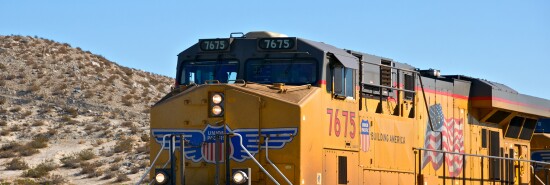
Rail safety bill is a bipartisan win for rural communities
Washington Examiner
Video Embed
Norfolk Southern, the company that owned and operated the freight train that derailed in Ohio last month, will spend millions of dollars cleaning up East Palestine and compensating the community for losses.
But even if the company were to buy out every family owning property in that community, it still would not fully capture the damage done to the citizens of that eastern Ohio village.
East Palestine is a unique place for the 2,500 people who live there. In a real sense, no amount of money can make up for the damage done by the train derailment and toxic chemical spill.
The regulatory cost to rail freight carriers transporting toxic chemicals before the East Palestine derailment wasn’t high enough. It is encouraging that we are already seeing bipartisan legislation in the Senate to reform how rail freight carriers manage the transport of toxic chemicals.
Some Democrats, including the persistently clueless Transportation Secretary Pete Buttigieg, were quick to point the finger at former President Donald Trump for the Norfolk Southern derailment because of a regulation he withdrew in 2017, which would have required that “high hazard” trains be equipped with a new braking system. But these Democrats were wrong. The train that derailed in East Palestine was not classified as “high hazard” but as “mixed freight” because only a relatively small number of its cars contained hazardous materials. As a “mixed freight train,” the regulatory safety burden of the train that derailed was significantly lower than the regulatory safety burden of a “high hazard” train.
As terrible as the toxic train derailment that injured East Palestine is, it is important to recognize that overall, the number of train derailments is near an all-time low — even as the tons of freight shipped on trains is near an all-time high. The system in place for nonhazardous materials is working. Legislators should not be looking to add unnecessary costs to an already strained supply chain, especially when the economy is still dealing with stubbornly high inflation.
What East Palestine taught us, however, is that freight rail companies have found loopholes that allow them to ship hazardous materials at safety levels reserved for nonhazardous trains. Again, the train that derailed in East Palestine was classified as “mixed freight” and not “high hazard.” That is what needs to change.
Legislation introduced by Sens. Sherrod Brown (D-OH), J.D. Vance (R-OH), Bob Casey (D-PA), Marco Rubio (R-FL), John Fetterman (D-PA), and Josh Hawley (R-MO) does that. It also doubles the number of sensors that monitor train equipment from one every 20 miles to one every 10 miles. This will help make high-hazard trains safer.
The bill isn’t perfect. It has some provisions that needlessly target nonhazardous trains. And raising the cost of safety regulations on shipping hazardous material by freight will incentivize more transport of hazardous material by truck, so it might be necessary to do a cost-benefit analysis on increasing safety regulatory costs of high-hazard trucking as well.
All these items can be fixed, first in committee and then through amendments on the Senate floor, as long as Senate Majority Leader Chuck Schumer (D-NY) allows the Senate to function as it should under regular order.
